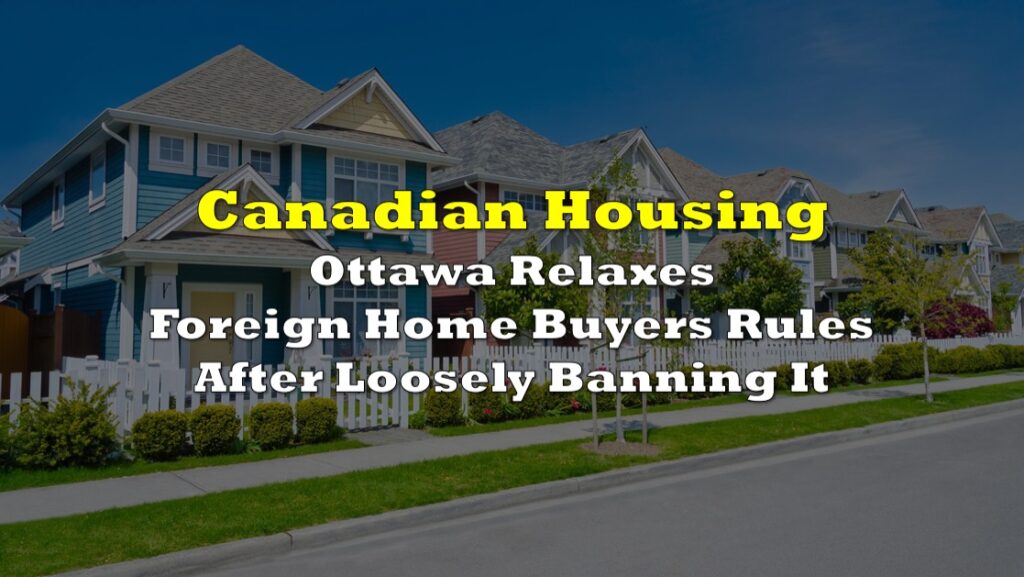With interest rates on the rise, potential homebuyers are finding it increasingly difficult to qualify for a mortgage. But, that doesn’t mean real estate agents still can’t make a sale— even if it means breaking the law.
A recent investigation by CBC Marketplace uncovered a ring of real estate agents, mortgage brokers, and even bank employees complicit in mortgage fraud, whom are raking in astounding amounts in fees from naive new Canadians. A career in the real estate business can be a lucrative one: real estate agents can earn anywhere between 2% to 5% commission on the sale of a house, which, when compared to the $640,479 average price of a home in Canada, can heed commissions upwards of $32,000 per sale. Likewise, a mortgage agent could make up to $2,550 in commission from a lender.
It is no wonder some real estate agents and their teams will go great lengths to secure a sale, seeking out vulnerable newcomers that are eager for homeownership in Canada. New Canadians are particularly vulnerable to real estate fraud, as they may not thoroughly understand the home-buying process, and are less likely to be approved for a mortgage from major banks because they lack sufficient credit and employment history in Canada. But, some agents are evidently willing to fabricate mortgage applications, charging an additional 1% of the mortgage in addition to the standard commission fees they’re already earning from the sale.
To uncover the illicit activity, two employees from CBC Marketplace were outfitted with hidden cameras and posed as newcomers looking to buy their first property in the Greater Toronto Area. The two undercover individuals seeked out 10 homes listed by real estate brokerages suspected of previously committing fraud. They told each of the agents they had sufficient funds for a 20% down payment, but assumed they wouldn’t qualify for a mortgage since the source of one spouse’s income was undeclared cash. Under such circumstances, the pair wouldn’t qualify for a mortgage from any of Canada’s big six banks.
Although all of the agents acknowledged the couple would be disqualified from a mortgage, six of them said they are willing to create counterfeit documents on their behalf and know brokers that would submit the fraudulent documents to a bank. “You know, by books, you will not qualify,” one agent was caught on camera saying. “They will do some documentation showing that you guys are making more and they will get you what you want. But they cannot openly say it out in public because that’s not true,” the agent continued, referring to connections they have that are willing to facilitate the process. “They will make a T4, they will make like she is on the payroll, they will use any company’s payroll and put their name onto that, right,” another agent said.
@RE_MarketWatch @CanIndian_Bro @daniel_foch @ronmortgageguy @nasmadotali @himansh36013599 @ManyBeenRinsed
— Paul09___ (@Paul09___) October 16, 2022
Check this out. These are on the forums on https://t.co/qjiDawpddG. #quickpapersfix @cbcmarketplace @RECOhelps @CREA_ACI @TheReal_TRREB @TorontoStar pic.twitter.com/4bO9rbs8Gd
To determine just how far some agents were willing to go to make a sale, Marketplace producers cold-called 25 agents or mortgage brokers across five of Canada’a major housing markets, including the GTA, the GVA, Montreal, Calgary, and Edmonton. Although most of them said they were unwilling to aid in creating a counterfeit mortgage application, one out of five agents said they were open to the idea. “My team will ask for $3,000 and I charge one per cent of the mortgage amount,” one agent was quoted as saying over the telephone.
Last night on CBC Marketplace, they looked at mortgage fraud in Canada.
— SmallCapSteve (@smallcapsteve) October 15, 2022
They cold-called 25 mortgage agents in 5 hot markets and found that 1 in 5 indicated a willingness to produce fraudulent documents. 20 percent!
If this sample is a fair representation, then buckle up!
The Marketplace investigation also discovered that such fraudulent real estate activity was even occurring within one of Canada’s major banks. Allegedly, individuals at Scotiabank were knowingly pushing through the forged tax and employment documents that were submitted by the mortgage agents on the outside. One of the “victims” of a fraudulent mortgage application told Marketplace that a Scotiabank employee altered and then submitted their mortgage application for a home in the GTA, after requesting a $5,000 fee to set up application profiles on their behalf. The couple, whom immigrated from Guyana in 2021, assumed the funds were a legitimate fee for the service.
Mortgage brokers in Ontario are disciplined by the Financial Services Regulatory Authority (FSRA), which according to the evidence presented by Marketplace, said the brokers in such situations are violating the Mortgage Brokerages, Lenders and Administrators Act, as well as committing a crime as per Canada’s Criminal Code. For real estate agents found guilty of falsifying, or assisting in falsifying mortgage applications, they face fines up to $50,000, prison sentences up to two years, and a suspension of their agent license.
However, such real estate fraud also affects the broader housing market. “As interest rates rise and house prices drop, these buyers are most likely to default on their payments and that can put further downward pressure on the housing market through panic sales,” said True North Mortgage CEO Dan Eisner. “If people obtain mortgages fraudulently and they thought their backup plan was to sell the house if I can’t afford it, that backup plan’s disappearing. It also keeps honest people out of the market as they compete for various homes.”
Information for this briefing was found via CBC News. The author has no securities or affiliations related to this organization. Not a recommendation to buy or sell. Always do additional research and consult a professional before purchasing a security. The author holds no licenses.










One Response
Why was the word “victims” in quotation marks? Do you know more?